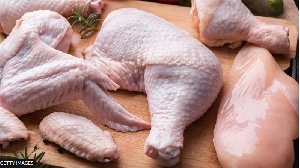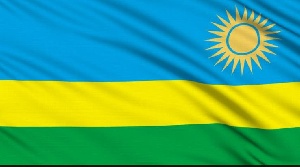Business News of Tuesday, 15 April 2025
Source: www.ghanawebbers.com
Annual $400m imports of chicken is a shame - Mahama
Ghana imports nearly $400 million worth of chicken each year. President John Mahama called this a source of shame for Ghanaians. He announced plans to support 54 individuals in producing four million birds. This would equal about 10,000 metric tons of chicken.
President Mahama emphasized his government's commitment to livestock development. This includes improving cattle production and small ruminants like goats and sheep. The government will also enhance access to high-quality breeds.
He made these statements while launching the Feed Ghana Programme in Techiman, Bono East Region. The programme will focus on agro production enclaves and infrastructure improvements. This includes irrigation systems, better roads, power supply, and warehousing facilities.
These efforts aim to attract private investment in agriculture. The President believes the programme will boost agricultural production and processing. He presented maize seeds, fertilizers, a Kia truck, and tractors to various institutions.
These institutions include the Ghana Prisons Service and National Service Authority. He urged unity in transforming agriculture for national growth and prosperity. The Feed Ghana Programme is a proactive initiative rather than just a policy.
Despite challenges in the sector, President Mahama remains optimistic about success. He called on farmers, agribusinesses, financial institutions, and partners to collaborate for positive outcomes. The programme aims to increase food production and promote modern farming techniques across Ghana.
Key interventions within the Feed Ghana Programme include smart agriculture initiatives. These involve establishing farmers’ service centres nationwide for essential services. Services will include mechanization, quality inputs, financial support, market access, processing, and training.
President Mahama announced plans for farm banks or land banks in irrigable zones. These will support young agri-entrepreneurs and boost national food production. The second component focuses on increasing maize, rice, soya beans, and sorghum production.
This aims at consumption as well as agro-processing and export opportunities. The third component promotes local vegetable cultivation through the ‘Yeredua’ project. This initiative seeks to reduce imports from neighboring countries by growing vegetables locally.
The President highlighted controlled environmental farming methods like greenhouse technologies. Urban agriculture is also encouraged along with schools growing their own vegetables through backyard gardening.
The fourth component promotes institutional farming for households and communities. It supports cultivating vegetables such as tomatoes and peppers for self-sufficiency. Institutions like Senior High Schools will receive assistance in crop production and livestock farming.
The fifth component revitalizes the poultry industry through the “Nkoko Nketenkete” project.











